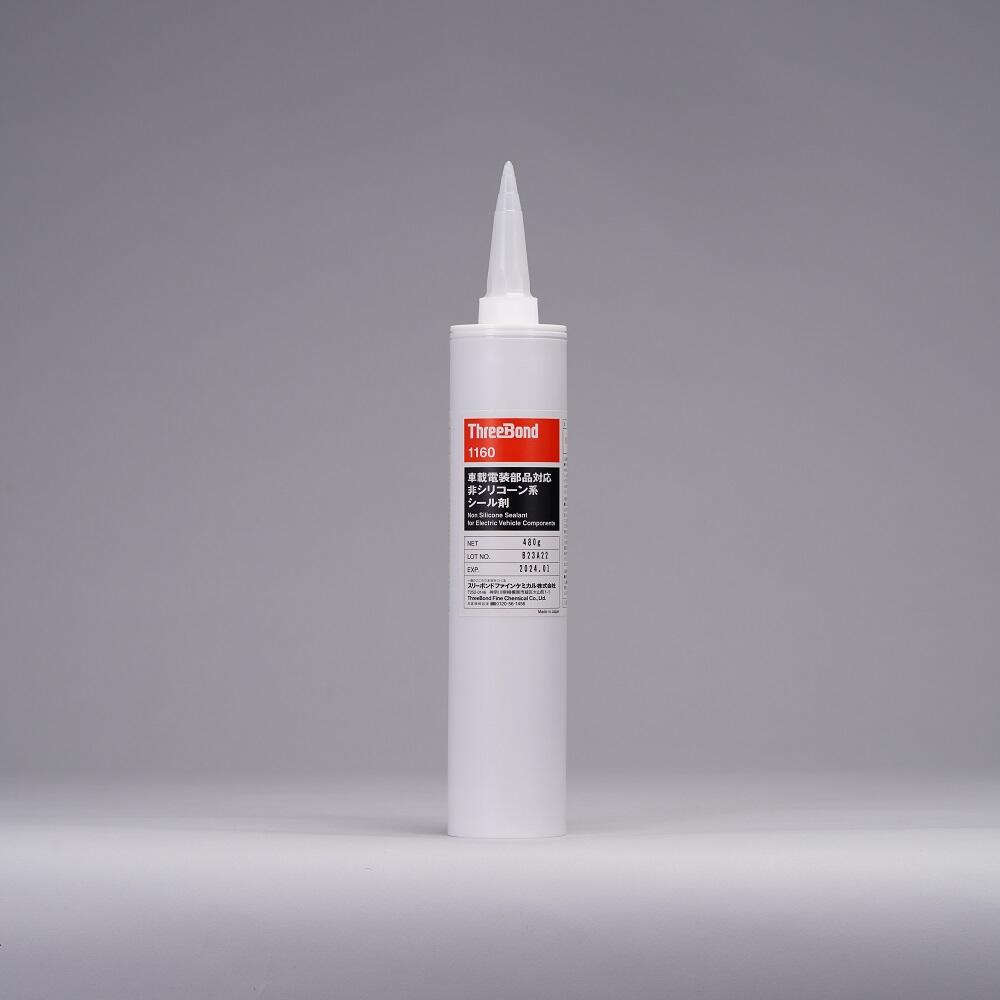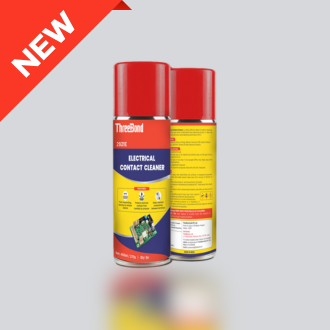Non-Silicone Sealants: A Cleaner, Safer Future for In-Vehicle Electrical Components
As the world pivots toward carbon neutrality, electric vehicles (EVs) are rapidly taking center stage. This shift brings along new technical challenges—especially when it comes to protecting the sensitive electronic components within vehicles. One emerging innovation in this domain is the non-silicone sealant, engineered to overcome the limitations of traditional sealants while aligning with global environmental mandates.
This blog explores the technology, applications, and performance of non-silicone sealants, focusing on ThreeBond 1160, a breakthrough product developed for the next generation of electric mobility.
Why Move Away from Silicone-Based Sealants?
For years, silicone-based sealants have been widely used due to their flexibility, adhesion, and temperature resistance. However, in modern EV applications, they present two significant drawbacks:
Challenges of Traditional Silicone-Based Sealants
- Low Molecular Siloxane Content:
These small molecules tend to evaporate and migrate under heat or vibration. When this occurs near sensitive electrical components, it can result in contact failure—a major risk in electric vehicles. - Organic Tin Compounds:
Commonly used as curing catalysts in silicone sealants, organic tin is flagged as a restricted substance under the European REACH regulations, due to its toxicity and environmental impact.
What is a Non-Silicone Sealant?
A non-silicone sealant is a high-performance formulation that avoids both low molecular siloxanes and harmful curing catalysts such as organic tin. Instead, it uses advanced polymers—like special polyether polymers—to provide superior sealing, environmental safety, and long-term reliability.
💡 Key Features:
❌ No Low Molecular Siloxane → Eliminates contact failure risk.
❌ No Organic Tin Compounds → Environmentally safe and REACH-compliant.
✅ 400% Elongation → Excellent flexibility after curing.
✅ Superior Water and Heat Resistance
🌍 Global Regulatory Compliance → Approved across major markets.
Where Are Non-Silicone Sealants Used?
With EVs relying more heavily on electrical control and power modules, the need for clean, compatible, and durable sealants is urgent.
Ideal Applications:
- EV Battery Case Sealing
- Electronic Control Units (ECUs)
- Sensor Housing
- Sealing of Connectors in Harsh Environments
- Low Molecular Siloxane-Free Requirements
- Replacement for RTV Sealants Under European REACH
ThreeBond 1160: A Breakthrough in Non-Silicone Technology

To meet these evolving demands, ThreeBond has developed and commercialized ThreeBond 1160, a high-performance non-silicone sealant for use in EV electrical systems.
Development Highlights:
🔬 Formulated using special polyether polymers and unique additives via patented technology.
🌿 Uses a non-tin-based curing catalyst, balancing performance with environmental compliance.
✅ Complies with REACH, RoHS, and other global environmental standards.
Properties & Technical Specifications
| Property | Performance |
| Elongation at break | 400% |
| Heat resistance | ✅ Excellent |
| Water resistance | ✅ Excellent |
| Cure mechanism | Moisture curing (tin-free) |
| Compatibility | High with vehicle electrical parts |
| Environmental compliance | Global (REACH, RoHS) |
This robust profile makes ThreeBond 1160 an ideal sealant for high-demand electrical environments in EV manufacturing.
Durability Test – 1,000-Hour Evaluation
To verify real-world performance, ThreeBond conducted a 1,000-hour durability evaluation comparing ThreeBond 1160 with a conventional urethane sealant.
Durability evaluation of developed products
Test Observations:
- Urethane Sealant (Blue Line): Showed significant deterioration, losing flexibility and physical integrity early.
- ThreeBond 1160 (Red Line): Maintained elasticity and high elongation even after 1,000 hours under identical conditions.
This validates the long-term reliability and superiority of non-silicone sealants over conventional options.
Comparison Table – Traditional vs ThreeBond 1160
| Criteria | RTV/Urethane Sealants | ThreeBond 1160 (Non-Silicone) |
| Low Molecular Siloxane | ✅ Present | ❌ None |
| Organic Tin Content | ✅ Present | ❌ None |
| Electrical Compatibility | ⚠️ Risk of Contact Failure | ✅ Safe |
| Environmental Compliance | ⚠️ Limited | ✅ REACH Compliant |
| Durability Over Time | ❌ Poor | ✅ Excellent |
| Heat/Water Resistance | ⚠️ Moderate | ✅ High |
Environmental & Regulatory Benefits
With growing emphasis on eco-conscious manufacturing, the benefits of non-silicone sealants go far beyond technical performance:
✅ REACH and RoHS Compliant
✅ No hazardous substances—improves worker safety
✅ Minimizes risk of regulatory penalties or product recalls
✅ Supports sustainable product lifecycles
Use Case Summary
Non-silicone sealants like ThreeBond 1160 are engineered for use in:
- ECUs and Battery Enclosures
- Sensor Modules and Electronic Connectors
- Electric Motor Encasements
- Siloxane-Free Electrical Zones
Their flexibility, long-term sealing performance, and clean chemical profile make them ideal for manufacturers transitioning to eco-compliant EV platforms.
Conclusion: Future-Proof Your Electronics with Non-Silicone Sealants
The future of mobility is electric—and that future demands materials that are safer, cleaner, and more reliable. Non-silicone sealants, such as ThreeBond 1160, are leading this evolution, offering the performance automotive engineers require with the environmental responsibility regulators demand.
From durability to compliance, the advantages of switching to non-silicone solutions are clear. It’s time to move beyond outdated formulations and embrace sealants designed for tomorrow’s vehicles.
Ready to Make the Switch?
Whether you’re an OEM, EV manufacturer, or component supplier, upgrading to ThreeBond 1160 can dramatically improve your sealing process and sustainability profile.👉 Contact us today to learn more about how non-silicone sealants can fit into your production line and elevate your brand’s commitment to quality and compliance.







Post a comment